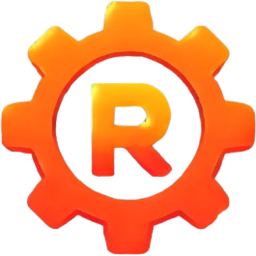How to Secure a Career in Rust Development
As a fast-growing programming language celebrated for its efficiency and memory safety, Rust has become increasingly popular among developers and tech companies. However, finding a role in this niche can be challenging due to the high demand for experienced Rust developers and the skill level required. Here are four strategies that industry professionals recommend to enhance your opportunities in this exciting field, especially for those interested in remote or nomadic Rust development.
1. Build a Strong Online Portfolio
Creating an online presence is essential to showcase your Rust expertise and gain visibility. Sharing your projects and insights with the Rust community allows potential employers to see your skills firsthand.
Expert Recommendations:
• Showcase Your Best Work: Publish your top Rust projects on GitHub or similar platforms to demonstrate your problem-solving abilities and Rust knowledge. Detailed documentation and well-organized repositories can make a positive impression.
• Engage Through Content: Share your expertise by writing articles, recording video tutorials, or posting on LinkedIn about Rust. This not only builds your credibility but also helps expand your reach within the developer community.
2. Expand Your Professional Network
Networking plays a significant role in landing job opportunities, as many positions are filled through recommendations and referrals. Actively engaging with the Rust community can open doors to positions that may not appear on traditional job boards.
Expert Recommendations:
• Join Rust-Focused Communities: Participate in online forums, Rust-focused Discord servers, and attend virtual or in-person meetups to connect with like-minded professionals.
• Utilize LinkedIn and Professional Networks: Use LinkedIn to connect with industry leaders, stay updated on relevant job openings, and showcase your Rust expertise. Engaging with posts and joining Rust-specific groups can further establish your presence.
3. Introduce Rust at Your Current Workplace
If you are already employed, consider advocating for Rust by starting small projects or pilot programs to demonstrate its benefits. Internal experience with Rust can enhance your portfolio and create a pathway to working with Rust full-time.
Expert Recommendations:
• Showcase Rust’s Advantages: Focus on Rust’s performance and memory safety benefits when presenting to team members or stakeholders. Try implementing Rust in a non-critical project to demonstrate these advantages practically.
• Engage Key Decision-Makers: Provide technical presentations or organize informal learning sessions to build interest. Gaining support from senior engineers or technical managers can create an opportunity to use Rust on a larger scale within your organization.
4. Apply Directly to Rust-Focused Roles
With an established foundation and relevant experience, the next step is to apply for positions where Rust is the primary language. Sites like LinkedIn, Stack Overflow, and Hacker News Hiring Boards frequently list Rust-specific roles, many of which offer remote options.
Expert Recommendations:
• Target Your Applications: Prioritize positions that explicitly mention Rust or list it as a preferred language. Craft your resume to emphasize relevant Rust experience, as well as any complementary skills like C++ or Python.
• Emphasize Versatile Skill Sets: While Rust expertise is valuable, combining it with other high-demand skills can set you apart. Highlight how Rust fits into your broader technical toolkit to present yourself as a well-rounded candidate.
Insights from Rust Professionals
In addition to these strategies, here are some tips from Rust professionals who have successfully transitioned into Rust roles:
• Start Rust Projects Internally: Many developers introduced Rust at their current workplaces by working on small, non-mission-critical projects. This approach allows teams to experience Rust’s advantages firsthand and may lead to broader adoption.
• Invest in Team Education: Structured learning, such as weekly Rust discussions and pair programming, has proven successful for teams adopting Rust. This collaborative learning fosters confidence and a deeper understanding of the language.
• Showcase Rust’s Practical Benefits: Projects focused on efficiency, like data-flow orchestration systems, have helped demonstrate Rust’s impact on team productivity and software performance.
• Contribute to Open Source: Initiating or contributing to open-source Rust projects is an excellent way to gain experience, strengthen your portfolio, and connect with the global Rust community.
By following these strategies, you can maximize your chances of securing a role in Rust development. Stay curious, actively participate in the community, and keep building your expertise to advance your career in this dynamic field.
Have You Landed a Job Using Rust?
If you have a success story about securing a position in Rust or tips to share, please reach out! Your insights could be invaluable for others aiming to join the Rust ecosystem.
